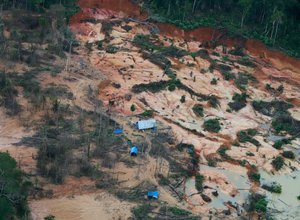Mercedes-Benz's response to Mighty Earth's response
Thank you for your inquiry on the recently published report “From Forests to Electric Vehicles: Quantifying and Addressing the Environmental toll of Indonesian Nickel”, 1 May 2024, Mighty Earth.
We want our products to contain only raw materials and other materials that have been mined and produced without violating human rights and environmental standards. On account of the complexity of the supply chain and the variety of raw materials and other materials in our products, Mercedes-Benz Group takes a risk-based and strategic approach.
We use a variety of measures and concepts for the sustainable management of our supply chain. We work closely with our direct suppliers and oblige them to pass on our Responsible Sourcing Standards within the supply chain. Further information with regards to measures taken can be found on our website, the Mercedes-Benz Sustainability Report and, especially, the Mercedes-Benz Raw Material Report.
Nickel is one of the 24 raw materials that Mercedes-Benz has classified as critical, for which we carry out a risk-orientated raw material assessment based on the logic and methodology of the UN Guiding Principles for Business and Human Rights (UNGPs). The aim is to proactively identify and mitigate risks in our raw material supply chains. Specific information on the methodology aligned with the UNGP can be found on our website.
Our supply chains are very complex and can involve many stages up to the mine. At each stage, there can be over 20 sub-suppliers. Our goal is to make supply chains more transparent. This allows us to better identify human rights and environmental risks and to counteract them in cooperation with our suppliers.
Nickel has been evaluated as part of these raw material assessments. The results of these assessments were published in our Mercedes-Benz Raw Materials Report.
The assessment essentially consists of three steps:
- Increasing transparency along raw material supply chains – especially with regard to certain key components such as battery cells. To this end, Mercedes-Benz AG, for example, contacts the suppliers of the relevant components and asks them to disclose their deeper supply chain.
- Identification of risk hotspots in these supply chains, e. g. based on the specific risks in the individual mining countries.
- Define and implement measures for the risk hotspots and review their long-term effectiveness.
Based on our raw material assessment, we address environmental and human rights risks in our supply chain and follow them up. This includes regular dialogues with our suppliers and on-site assessments. Our clear goal is to make supply chains more transparent, to enable close cooperation as well as to improve a common understanding of local conditions. This enables us to better identify human rights and environmental risks and counteract them in cooperation with our suppliers.
Moreover, Mercedes-Benz requires its direct suppliers to comply with our Responsible Sourcing Standards (RSS), to integrate them into their upstream value chains and to monitor compliance with them. The RSS are derived from the requirements for human rights, environmental protection and business ethics, which Mercedes-Benz Group AG applies in its own business activities. With a supply contract with Mercedes-Benz, suppliers agree to create transparency in their supply chains in order to identify risk hotspots and potential human rights risks and to counteract them by taking appropriate action in accordance with the OECD guiding principles. This is a major challenge that cannot be addressed at the touch of a button due to the supply chain’s complexity. Compliance with our sustainability standards is systematically monitored. That includes the screening of our suppliers, risk-based due diligence analyses, and sustainability training courses for suppliers. Through these measures we support compliance with social standards and environmental requirements and achieve greater transparency in the supply chain.
In 2022, Mercedes-Benz decided to continue the audit activities in cooperation with RCS Global due to the increasing due diligence requirements and increased transparency in the battery cell supply chains, and to extend the scope beyond cobalt to the raw materials lithium, nickel, copper, graphite and manganese. In addition, the audit scope of human rights due diligence was expanded to include environmental aspects such as biodiversity, water protection, hazardous substances and energy management.
Auditing Mines is another important tool for carrying out due diligence in raw material supply chains and to address environmental and human rights risks that depend on the management of the mine on site. Therefore, only battery raw materials which were extracted from mines audited will be used for our battery cells in the future. Mercedes-Benz requires raw material sources that are audited according to the recognized mining standard of the Initiative for Responsible Mining Assurance (IRMA).
We currently don’t source Nickel directly. However, we map our Nickel supply chains in great detail in an ongoing process, as they are dynamic and very complex with many tier stages. Please understand that our detailed supply chain mapping is confidential business information.
According to the United States Geological Survey the main sourcing countries for nickel are Indonesia, Philippines and Russia. For more information, please have a look at our Raw Materials Report which we update frequently. 3
In general, there are different models for the procurement of raw materials. At the moment, we do not source many raw materials directly, but we regularly review all options. This includes exploring new ways to advance opportunities to securing sustainable sources of raw materials. Mercedes-Benz is diversifying the sourcing of our raw materials and is constantly screening the market. In this context, environmental aspects are of particular importance for us. By building long-term and sustainable partnerships with raw material providers, we believe to have a strong lever to address our sustainability standards directly in the deeper supply chain.
